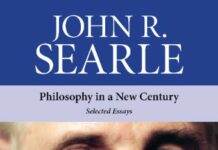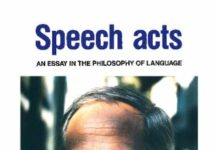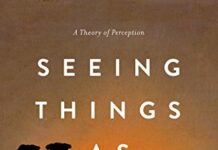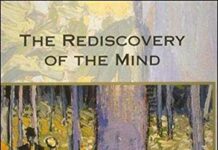
Ebook Info
- Published: 1983
- Number of pages: 292 pages
- Format: PDF
- File Size: 29.69 MB
- Authors: John R. Searle
Description
John Searle’s Speech Acts (1969) and Expression and Meaning (1979) developed a highly original and influential approach to the study of language. But behind both works lay the assumption that the philosophy of language is in the end a branch of the philosophy of the mind: speech acts are forms of human action and represent just one example of the mind’s capacity to relate the human organism to the world. The present book is concerned with these biologically fundamental capacities, and, though third in the sequence, in effect it provides the philosophical foundations for the other two. Intentionality is taken to be the crucial mental phenomenon, and its analysis involves wide-ranging discussions of perception, action, causation, meaning, and reference. In all these areas John Searle has original and stimulating views. He ends with a resolution of the ‘mind-body’ problem.
User’s Reviews
Reviews from Amazon users which were colected at the time this book was published on the website:
⭐This is a very good read. Searle carefully explains the topic.
⭐Will blow your mind
⭐I disagree with most critic reviews of Searle’s book. My prefered analytical philosophers in America are Searle and Kripke. The difference is that Kripke is academically hipervaluated while Searle is academically underrated. Easy to explain, since the ideal language philosophy has won the race in the academy, while Searle, comming from the philosophy of ordinary language, belongs to the few (if not the only) remanescents of the old orthodoxy. Moreover, he is very critical against the brilliant absurdities so easy to find in the present philosophy of language, what surelly isn’t flattering for the academic millieu. About the way he writtes I found it extremely clear and even funny, though academically prophane, remembering Popper. The book is densely written and brings originality in nearly each page. His criticism of Kripke’s and Putnam’s theories, though not decisive, shows that the new orthodoxy in philosophy of language has at least as many flaws as the old orthodoxy to which he himself belongs. The deep insight that sustains the book is the idea that the speech act theory reflects the structure of intentionality. Any intentional act must have the form M(p) (M = intentional mode) in the same way as any speech act must have the form F(p) (F = ilocutionary force). Philosophically this is the best of Searle’s books.
⭐P>In his usual manner, Searle tackles the problem of consciousness and how the mind works in this thorough examination of both classical and contemporary concerns. It’s an exceedingly masterful task that is richly rewarding, if only slightly frustrating because of his poor syntactical structures.Analytic philosophy is often difficult enough, and this book is of average difficulty, but when an author does not write clearly with near-run-on sentences, myandering and labyrinthine syntax, and in less than necessary obtuseness, it is a drawback. This is my only complaint.Part of the problem is the author’s, part reader’s. Searle is going against the analytic grain by expositing a theory of mind that is at once novel and distinctive, clearing up confusions and ambiguities along the way. But these new ideas and the direction of fit they present are exciting and facinating, even if the presentation is less than perfect.It’s hard to imagine modern-day analytic philosophers going out on a limb with actual theory (they tend toward the criticism of others), so that it is refreshing that someone of Mr. Searle’s reputation and caliber takes a stab at presenting a coherent theory of mind in new dress and ambiance: Naive realism.This isn’t the first book of Searle’s I’d recommend. That honor goes to “Mind, Language, and Society,” his short, but densely argued, and clearer exposition, of several ideas (some of which he adumbrates from this volume). If you like what you read in THAT book, this book will further delight you.What’s so agreeable about Searle, if not his syntax, is his willingness to posit a coherent theory of mind in the traditional vein but in entirely new clothing. It’s refreshing to see a modern philosopher actually doing philosophy, not critiquing the philosophy of others. Searle would probably have advanced his cause by having someone else tidy up his presentation, as this drawback reduces the splendor of the overall book.
Keywords
Free Download Intentionality: An Essay in the Philosophy of Mind in PDF format
Intentionality: An Essay in the Philosophy of Mind PDF Free Download
Download Intentionality: An Essay in the Philosophy of Mind 1983 PDF Free
Intentionality: An Essay in the Philosophy of Mind 1983 PDF Free Download
Download Intentionality: An Essay in the Philosophy of Mind PDF
Free Download Ebook Intentionality: An Essay in the Philosophy of Mind




